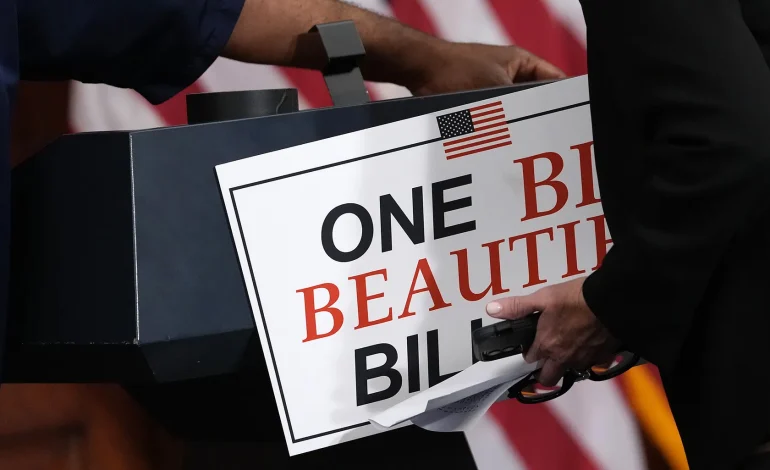Fund managers in the United States are lobbying Congress to reconsider a provision in President Donald Trump’s tax legislation that they warn could prompt significant foreign investor withdrawals from US equities.
The provision, known as Section 899 and part of the recently passed “One Big Beautiful Bill Act,” seeks to impose retaliatory taxes on foreign-owned firms from countries deemed to have “unfair foreign taxes,” including those with digital services taxes or those participating in the OECD global minimum tax.
The Investment Company Institute (ICI), representing US fund houses, sent a letter to Senator Mike Crapo, chairman of the Senate Finance Committee, cautioning that Section 899 could inadvertently impact most foreign investments in US stock markets. The ICI described the US fund management industry as potential “collateral damage” of the legislation, with fears that foreign investors—particularly those in Europe focused on dividend-paying US companies—might reconsider their holdings due to higher tax burdens.
According to the ICI, Section 899 would impose an additional tax starting at 5%, rising annually by 5 percentage points to a maximum of 20%, on top of existing taxes and treaties. This could reduce returns on investments in US equities for foreign shareholders, potentially leading to capital outflows. The ICI warned that such sustained selling might depress US equity markets, harming both US companies and investors.
The proposed tax is designed to counteract foreign governments’ taxes deemed discriminatory against US businesses, but the ICI argues that the current wording also penalizes investment funds and their shareholders. It calls for clarification to exclude funds such as US mutual funds, ETFs, and their foreign equivalents (e.g., UCITS funds) to avoid discouraging foreign investment in US markets.
Industry experts also note that while the tax could affect dividend-focused investors, the overall impact on the US equity market might be limited. US companies typically return capital through share buybacks rather than dividends, which are less likely to be taxed under Section 899.
Data from Apollo Global Management indicates that foreign investors currently hold approximately $19 trillion in US stocks, $7 trillion in government bonds, and $5 trillion in credit instruments. The potential withdrawal of foreign capital due to Section 899 raises concerns about market stability and investment flows.
The ICI stated that it supports efforts to protect US business interests overseas and address unfair foreign taxes but urged that the legislation’s unintended consequences be addressed to prevent capital flight and adverse effects on the US economy.
Senate officials, including Senator Crapo’s office, declined to comment on the matter.










The latest news in your social feeds
Subscribe to our social media platforms to stay tuned